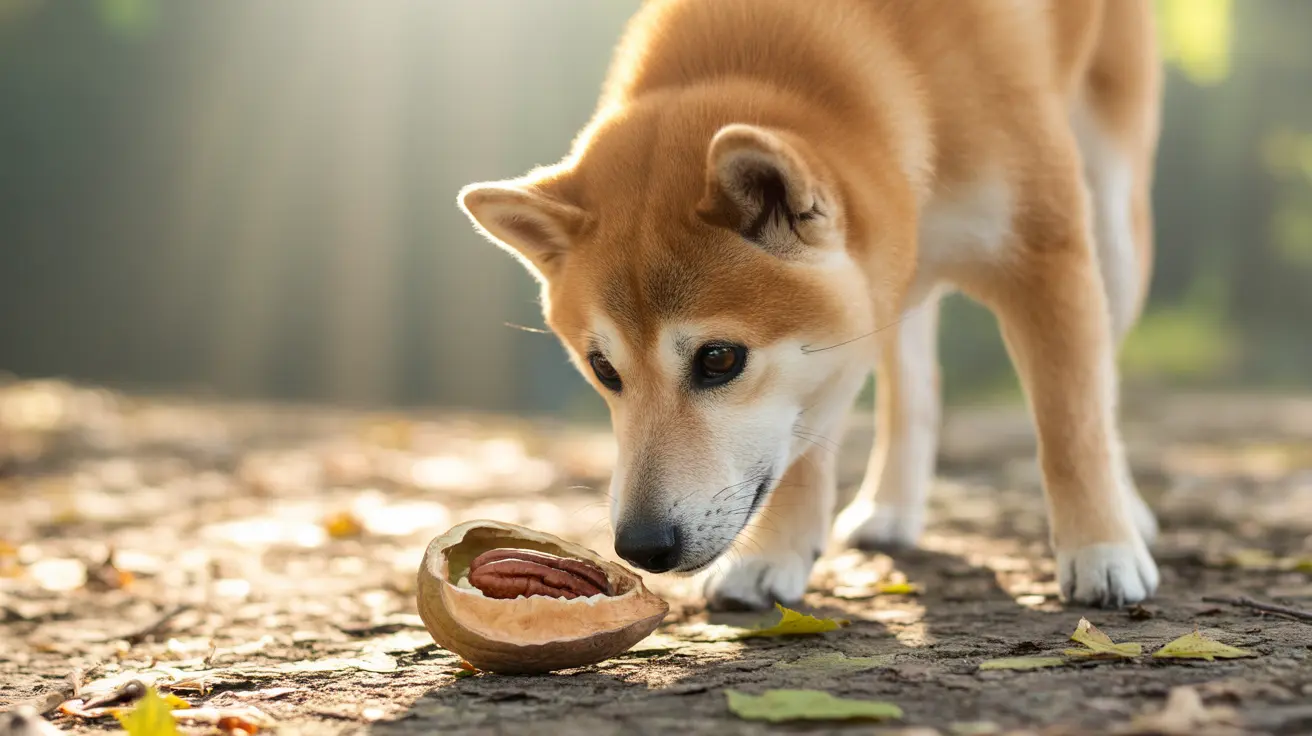If you've ever wondered whether dogs can have pecans, the simple answer is no - pecans are not safe for dogs to eat. While these nuts might be a healthy snack for humans, they pose several serious health risks to our canine companions. Let's explore why pecans should be kept away from dogs and what to do if your pet accidentally consumes them.
Understanding the dangers of pecans for dogs is crucial for every pet owner, as even small amounts can cause significant health issues. From toxic compounds to potential mold contamination, these nuts present multiple hazards that make them unsuitable for canine consumption.
The Dangers of Pecans for Dogs
Pecans contain several compounds that can be harmful to dogs. The most concerning is juglone, a naturally occurring toxin that can cause neurological and musculoskeletal problems in dogs. This substance is particularly dangerous because it can accumulate in your dog's system over time, potentially leading to long-term health issues.
Additionally, pecans are extremely high in fats, which can trigger severe digestive problems and potentially lead to life-threatening conditions like pancreatitis in dogs. Even small amounts can cause stomach upset in sensitive dogs.
Toxic Components and Health Risks
Natural Toxins in Pecans
Beyond juglone, pecans can harbor other dangerous substances. They're particularly susceptible to mold growth, which produces harmful mycotoxins. These toxic compounds can cause severe neurological symptoms in dogs, including tremors and seizures.
Physical Hazards
Whole pecans present a significant choking risk, especially for smaller dogs. The nuts can also cause intestinal blockages if swallowed whole, potentially requiring emergency surgery to remove.
Signs of Pecan Poisoning in Dogs
Watch for these common symptoms if your dog has eaten pecans:
- Vomiting and diarrhea
- Lethargy and weakness
- Muscle tremors or seizures
- Loss of coordination
- Yellowing of the eyes or skin (jaundice)
- Excessive thirst and urination
- Loss of appetite
What to Do If Your Dog Eats Pecans
If you catch your dog eating pecans, quick action is essential. Contact your veterinarian immediately, even if your dog isn't showing symptoms yet. The sooner you seek professional help, the better the chances of preventing serious complications.
Your vet may recommend inducing vomiting if the ingestion was recent, or they might suggest bringing your dog in for immediate treatment, depending on the amount consumed and your dog's symptoms.
Safe Alternatives to Pecans
Instead of pecans, consider these safe treats for your dog:
- Small pieces of apple (without seeds)
- Baby carrots
- Blueberries
- Commercial dog treats
- Plain, cooked lean meats
Prevention Tips
The best way to protect your dog from pecan-related health issues is through prevention:
- Store pecans and other nuts in sealed containers out of your dog's reach
- Clean up fallen nuts from pecan trees in your yard
- Inform family members and guests not to feed pecans to your dog
- Keep an eye on your dog during outdoor walks where pecans might be present
Frequently Asked Questions
Are pecans safe for dogs to eat, and what makes them dangerous?
No, pecans are not safe for dogs. They contain toxic compounds like juglone, have a high fat content that can cause pancreatitis, and often harbor dangerous molds that produce mycotoxins. These factors make pecans potentially dangerous or even lethal for dogs.
What symptoms should I watch for if my dog eats pecans?
Watch for vomiting, diarrhea, tremors, seizures, lethargy, loss of coordination, yellowing of eyes or skin, excessive thirst, and changes in appetite. Any of these symptoms requires immediate veterinary attention.
How should I respond if my dog ingests pecans or shows signs of poisoning?
Contact your veterinarian or emergency animal hospital immediately. Don't wait for symptoms to appear. If possible, note how many pecans were eaten and when the ingestion occurred to help guide treatment.
Can pecans cause pancreatitis or neurological problems in dogs?
Yes, pecans can cause both conditions. Their high fat content can trigger pancreatitis, while their toxic compounds and potential mold contamination can lead to serious neurological issues.
What are safer nut alternatives or treats I can give my dog instead of pecans?
Instead of nuts, offer dog-safe fruits like apple slices (without seeds) or blueberries, vegetables like carrots, or commercially produced dog treats. Always consult your veterinarian before introducing new foods to your dog's diet.






